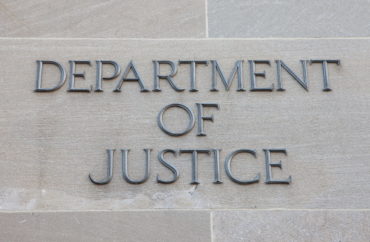
Former DOJ attorney says it’s as simple as enforcing a 1996 law
President Donald Trump can support American students by enforcing a 24-year-old law signed by President Bill Clinton.
The “Illegal Immigration Reform and Responsibility Act of 1996” includes a provision that requires any state that allows illegal immigrants to attend public universities at in-state rates to offer the same tuition to out-of-state U.S. citizens.
But a former Department of Justice attorney told The College Fix that the federal government has never enforced this part of the law.
Hans von Spakovsky, a Heritage Foundation senior legal fellow and former Federal Election Commission member, explained how President Trump could pressure states on this issue.
Currently 19 states offer in-state tuition to illegal immigration, according to the National Conference of State Legislatures.
In general, out-of-state tuition is about $10,000 to $30,000 more expensive than in-state tuition on an annual basis.
“If the DOJ actually enforced the law those states would lose, they’d be forced to either stop providing in-state tuition to illegal immigrants or get rid of increased tuition for U.S. citizens,” von Spakovsky told The College Fix via a phone interview.
MORE: After violent week, Kenosha college students turn out to support Trump
He said he is “disappointed” that the Department of Justice has never enforced the statute. That statute states:
Notwithstanding any other provision of law, an alien who is not lawfully present in the United States shall not be eligible on the basis of residence within a State (or a political subdivision) for any postsecondary education benefit unless a citizen or national of the United States is eligible for such a benefit (in no less an amount, duration, and scope) without regard to whether the citizen or national is such a resident.
“It’s unfair that citizens have to pay out of state tuition when illegal immigrants do not,” von Spakovsky said.
A federal judge has previously ruled in 2007 that the statute does not allow for a private right of action, where students could sue states or universities for not providing the tuition rates.
But President Trump and Attorney General Barr could simply direct the DOJ to enforce the law.
“The problem is that while the statute has been on the books for many years, and a number of states have violated it, the DOJ has never acted to enforce the law,” von Spakovsky said.
The Department of Justice did not respond to an emailed request for comment from The College Fix on Tuesday.
He previously criticized the Obama administration in 2011 for not suing states that were, in his words, “incontrovertibly and brazenly violating an unambiguous federal immigration law” while it sued states like Arizona for attempting to enforce immigration law.
“The Attorney General of the US needs to tell the head of the Civil Division to enforce the statute,” vons Spakovsky told The College Fix. “This would mean filing suit against states like Texas and California that provide in-state tuition to illegal immigrants.”
He warned that states have tried to get around the federal law by using proxies for residency.
He told The College Fix:
States have tried to get around it by saying they’re not going to take into consideration your citizenship when you apply to a public college. Instead, you just simply have to have been a resident of the state for a certain amount of time or went to a local high school in the state for a certain amount of time. I don’t think that actually gets around the statute because the result is that they’re providing in-state tuition to people who are here illegally.
States are not prevented from providing in-state tuition to illegal immigrants under the federal statute, von Spakovsky noted, “it just says you have to provide in-state tuition to all U.S. citizens.”
The 19 states that offer undocumented students in-state tuition are: Arkansas, California, Colorado, Connecticut, Florida, Illinois, Maryland, Kansas, Nebraska, Washington, Minnesota, New Jersey, New Mexico, New York, Oregon, Texas, Utah, Rhode Island, and Oklahoma, according to the National Conference of State Legislatures.
Experts have debated how the Obama administration’s Deferred Action for Childhood Arrivals program, commonly known as DACA, interacts with this statute.
A 2013 article from University of Houston law professor Michael Olivas argued that all DACA recipients would be eligible for in-state tuition. However, a 2017 Arizona state court ruled that DACA did not necessarily allow for recipients to qualify for in-state tuition.
MORE: New York State legislation allows in-state tuition for illegal immigrants
IMAGE: Mark_Van_Scyoc. Shutterstock
Like The College Fix on Facebook / Follow us on Twitter






Please join the conversation about our stories on Facebook, Twitter, Instagram, Reddit, MeWe, Rumble, Gab, Minds and Gettr.